[ad_1]
Our latest venture for the Early Career Innovator’s Forum took us to The Genome Analysis Centre (TGAC) – now known as Earlham Institute) on the Norwich Research Park.
A combination of 40 young farmers and early-stage scientists came together to explore the work that TGAC does in the agricultural sector, and to talk about how science and farming can come together to face some of the challenges that will hit in the industry in the coming years.
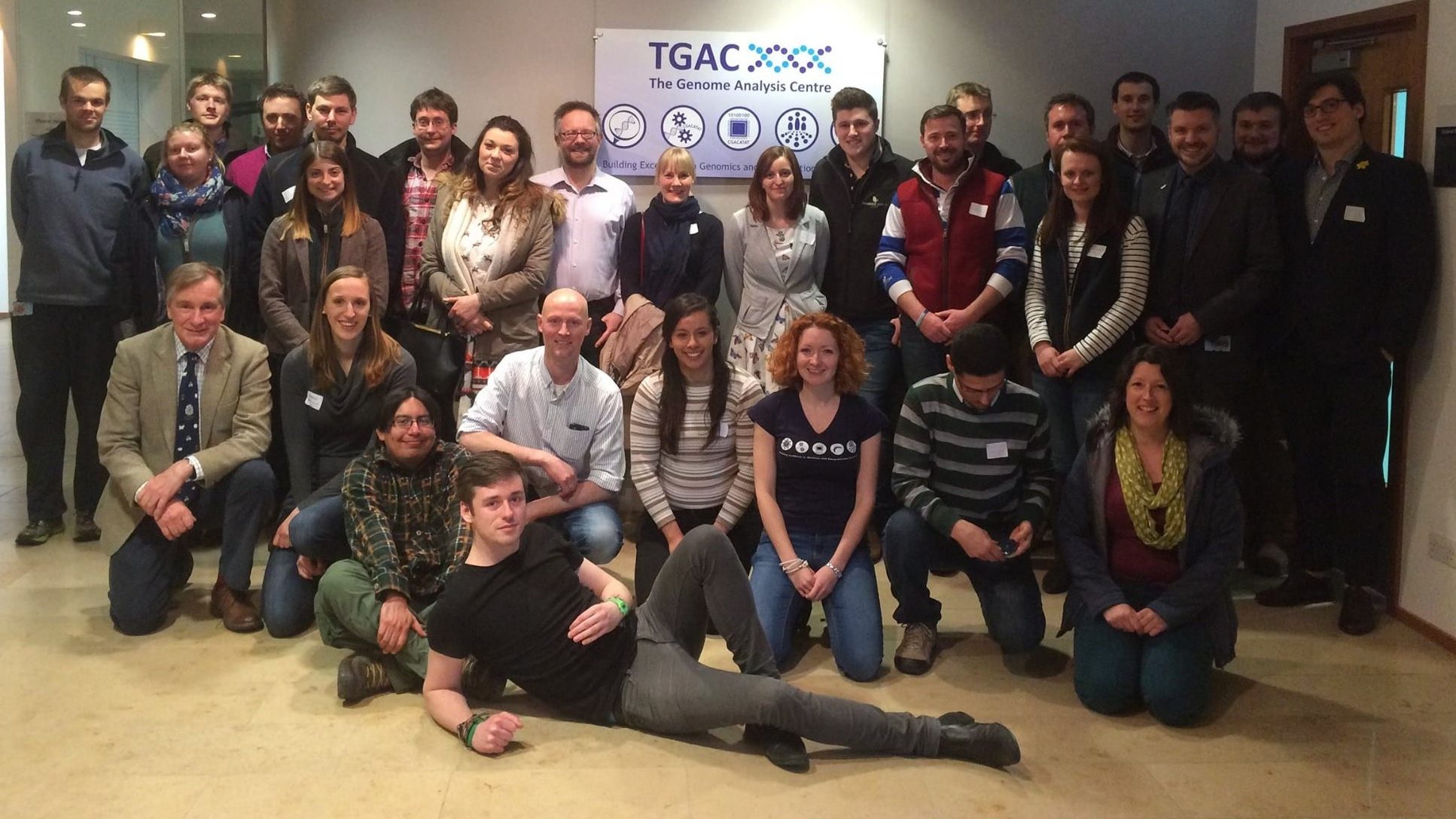
We kicked off the evening with some presentations from the scientists themselves explaining their projects. We covered all sorts, from running real-time field video monitoring programmes with Raspberry Pi computers to identifying specific genes in a plant.
What really got everyone’s interest was the potential to sample air for crop pathogens. The idea is simple… in theory! A box with a kind of ‘air vacuum’ that could suck in air from your field and analyse the DNA captured for specific pathogen types – all within a few minutes. Whilst it might be a way off from achieving a finished product, early work is proving fruitful – and it’s very plausible that we could see this technology on the market in the next decade.
This kind of research is vital in alerting farmers to diseases that they may not otherwise be able to detect visually for two weeks – allowing a preventative solution to be applied in precise locations where necessary.
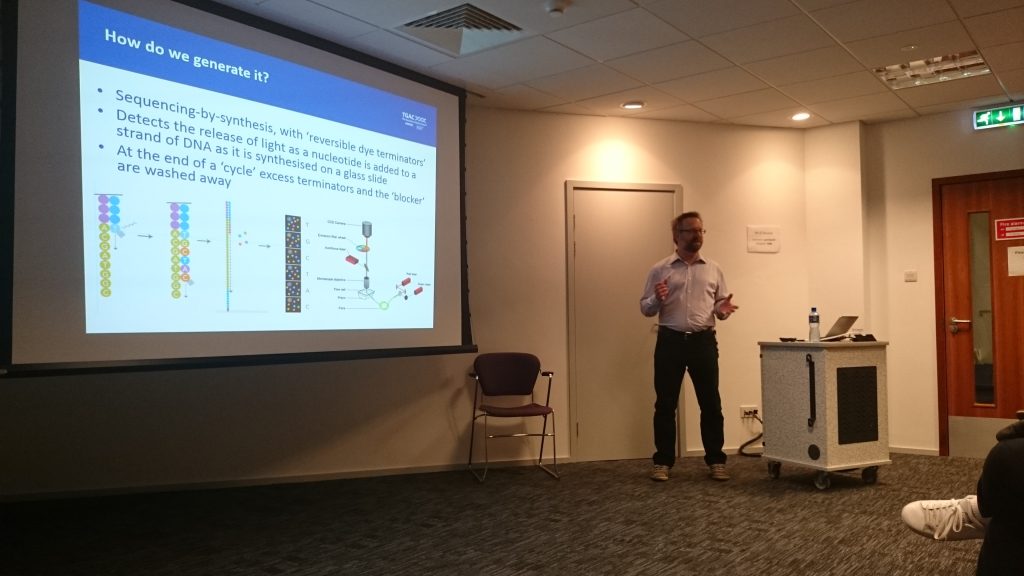
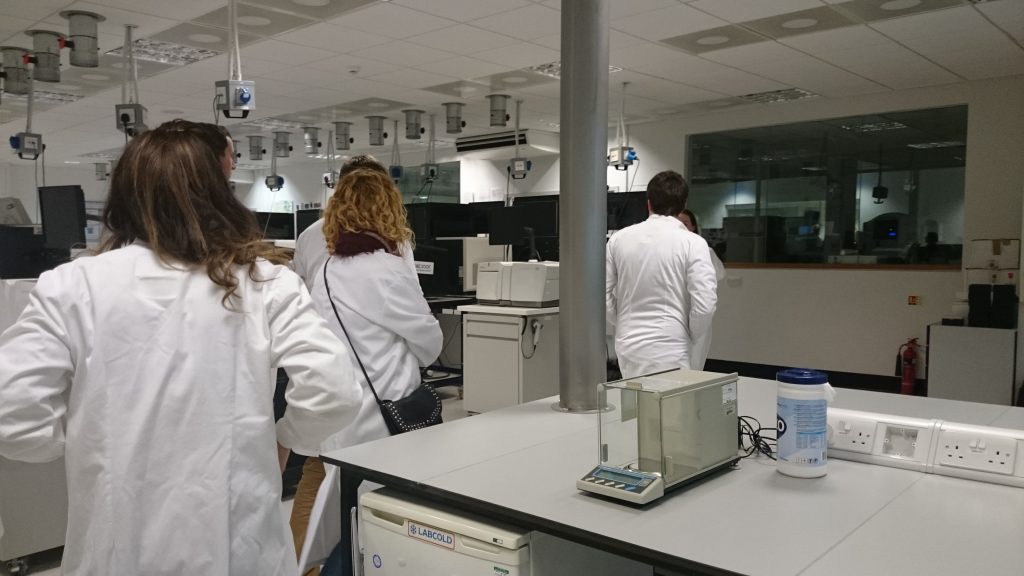
We moved onto a tour around TGAC’s cutting-edge lab facilities, and we were able to learn about how they sequence these tiny samples of DNA. One thing that surprised us were the robots that they can employ to carry out the work for them, which expands their capacity immensely.
Collaboration between our scientists and our suppliers
The feedback discussions were very fruitful, and by the end, some scientists had even pencilled in future visits to our farmland! Whilst the biggest challenge to growers will always be weather, it was agreed that science can help producers target what they do. Science will change agriculture, and suppliers need to work with scientists to make the most of the technology available to us – and vice versa! Scientists need to get in-field and test their work to make it ‘farm-proof’.
One comment that, for me, really highlighted why we need these links came from the scientists: ‘Apparently there is a big problem with black grass, which many of us hadn’t heard about – so maybe we need to work on a spray treatment for that’.
By bringing together these early-stage groups, we are passing knowledge between each other that could have real benefits to our industry – and these ideas could well have been missed without these discussions.
I was astounded how naturally this relationship came to the young innovators – for them, working together seemed a very clear way forward for the future. Now, to get this message across to some of the more experienced workers in the industry!
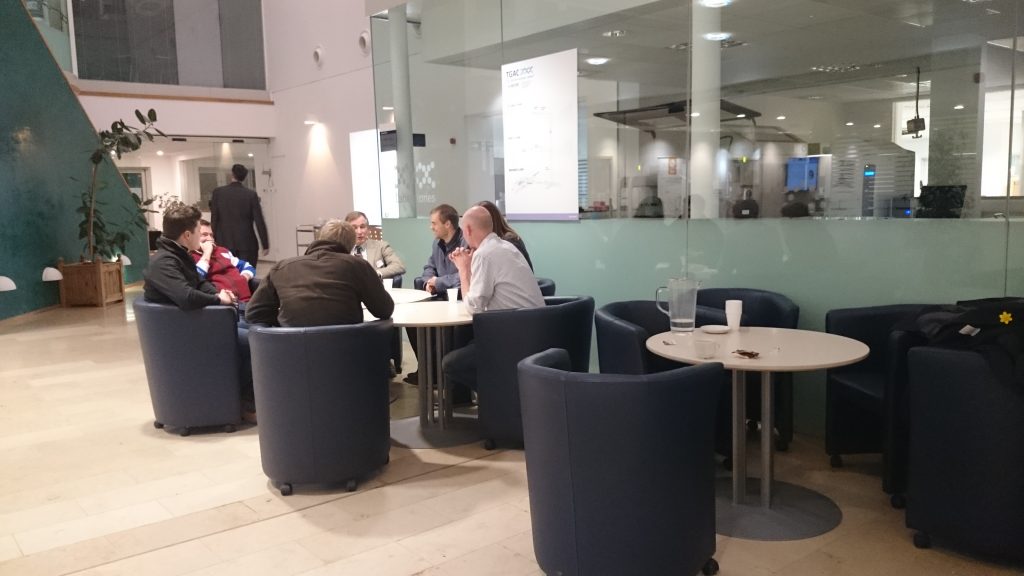
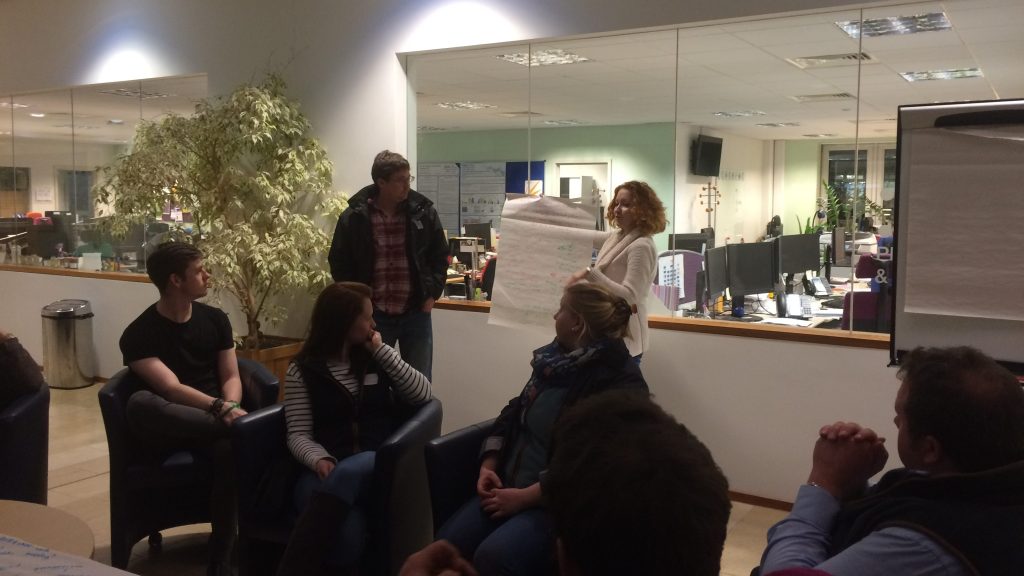
Source link


